Islamic thinker calls for ‘homegrown path to tolerance and transitional justice in Sudan’
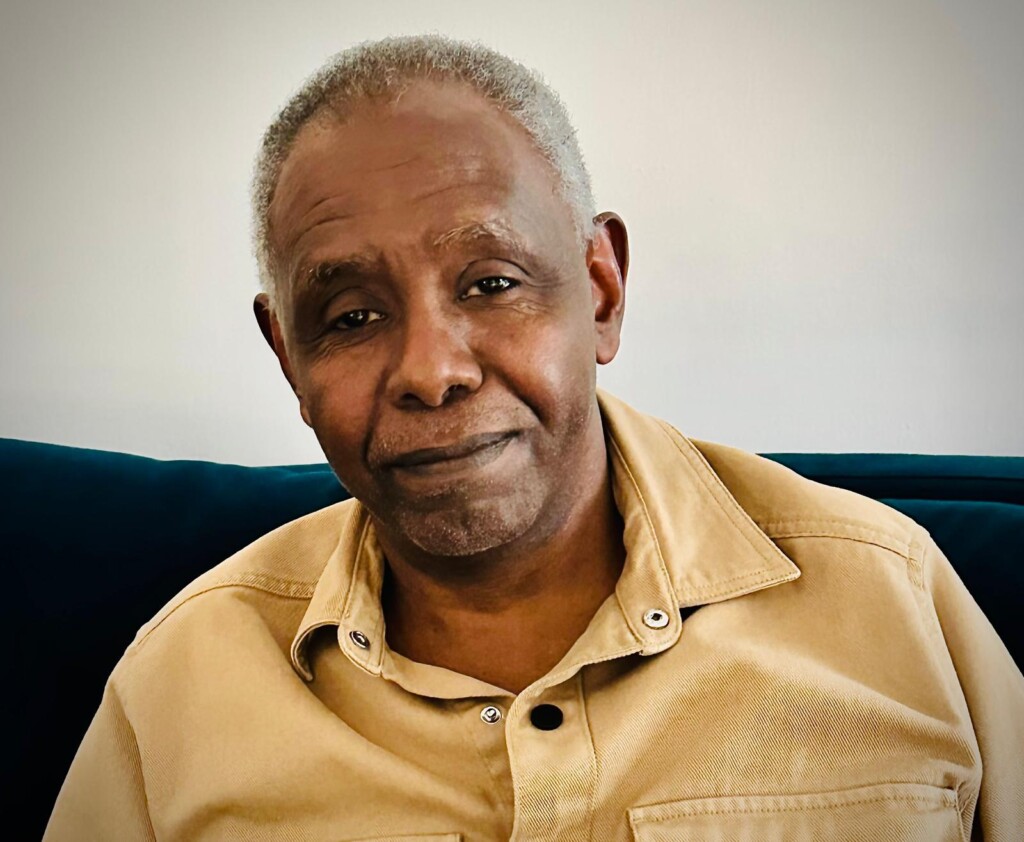
Dr El Mahboub Abdelsalam, speaking on Radio Dabanga’s Plain Speaking programme on September 22, 2025 (Photo: RD)
Islamic thinker Dr El Mahboub Abdelsalam says Sudan’s Islamists failed to learn from their three decades in power and must now face up to democracy, accountability, and dialogue. Speaking in an in-depth interview on Radio Dabanga’s Plain Speaking programme on Saturday, Abdelsalam accused both the National Congress Party (NCP) and the Islamic Movement of remaining locked in a culture of confrontation.
“They did not hold themselves to account for what they committed, or even for what they achieved,” he said.
He described the Islamist era as a disaster marked by massive human rights violations and wasted opportunities, despite the movement’s access to well-educated cadres and experience under Jaafar Nimeiri and Sadiq al Mahdi.
“The contradictions were huge. As many Islamists in the Arab world admit, Sudan’s experience became an embarrassment to them,” Abdelsalam noted.
He stressed that democracy is the decisive test for Sudan today: “It is the framework our state institutions and civil organisations must reach.”
‘Deep splits in the Islamist camp‘
Abdelsalam said the now dissolved NCP, which was toppled along with former Sudanese President Omar al-Bashir in the December 2019 Revolution, is now split into two rival leaderships.
Adding that, the broader Islamic Movement has fractured into several currents, including the Popular Congress Party, divided between Dr Ali al-Haj and Eng Amin Mahmoud, the faction led by Ali Karti, the Reform Now Movement, and another group that recently met in Kuala Lumpur.
Despite this fragmentation, he rejected calls to exclude Islamists from Sudan’s future.
“The Islamic Movement has been in politics for seventy years. It is like a family spanning grandparents to grandchildren. You cannot build Sudan’s future by excluding an entire current or school of thought.”
But he stressed that political Islam must review its record and present a vision consistent with the national interest and democracy.
Islamists and the war
Many Sudanese blame the Islamic Movement for the war. Abdelsalam warned against blanket judgements.
“It is wrong to generalise. Some factions called for dialogue, others declared constructive opposition. You cannot solve a crisis of this scale by exclusion, or by branding one side as terrorists and the other as traitors. Mutual accusations will not end the war.”
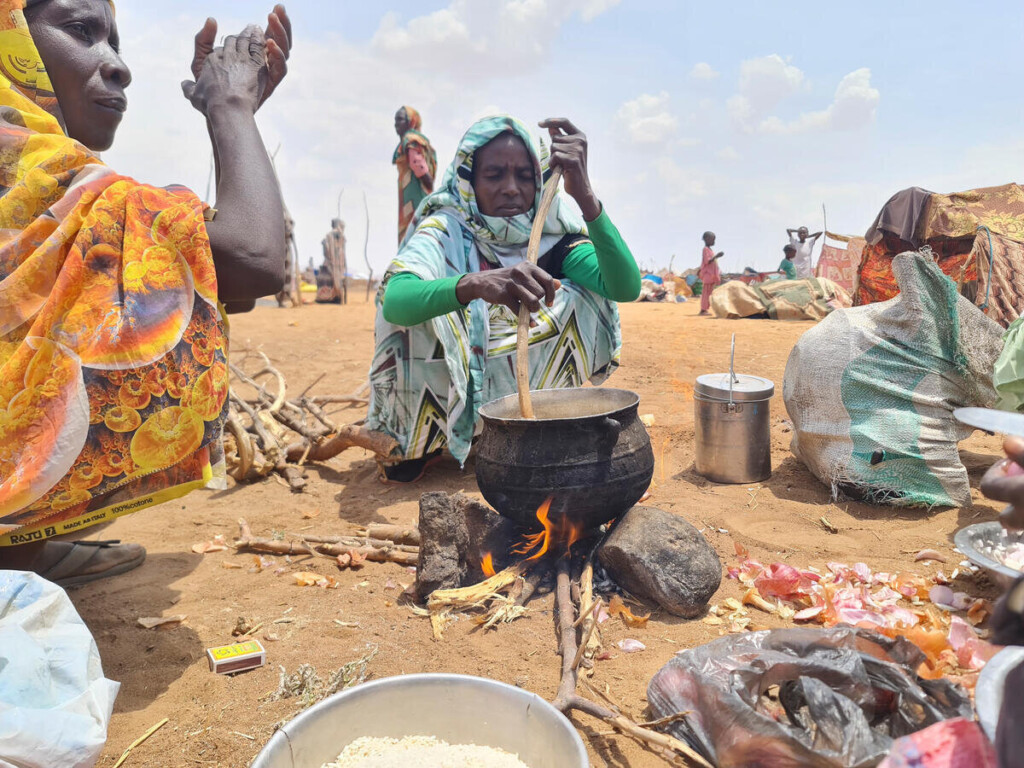
A nation in agony
Abdelsalam said the war has touched every Sudanese person. People lost homes, livelihoods, and dignity.
“What is needed now is courage from political forces with long histories, to produce fresh ideas that can move the country beyond war,” he urged.
But he criticised Sudan’s decision-making centres, the Sudanese Armed Forces (SAF), Sovereignty Council, and Cabinet, for failing to put forward a unifying vision to stop the conflict.
He also pointed to the rival Founding Government, led by paramilitary Rapid Support Forces (RSF) Commander Mohamed Hamdan Dagalo (Hemedti), which declared a government in South Darfur’s capital of Nyala, in July.
“It is not enough to set up another government while war and suffering continue, and Sudanese pay unbearable costs. These problems demand bold ideas and courageous leadership,” he said.
‘Two governments, one nation divided’
Abdelsalam warned that Sudan’s two competing governments are driving the country towards deeper fragmentation.
“This reality forces itself without a clear vision,” he said. He explained that RSF forces shifted from Khartoum to El Gezira, then withdrew, and are now confined to parts of Darfur and Kordofan without fully consolidating control. The Nyala government, he added, took time to form because of divisions among its backers.
“I do not see ideas or answers that can overcome these challenges,” he remarked.
Obstacles to peace
Abdelsalam blamed Sudan’s fractured political scene for prolonging the war.
“I tried on several occasions to bring Sudanese rivals to a roundtable, but the attempts failed. The scene is split between supporters and opponents of the war, between supporters and opponents of the army,” he said.
He called for deep spiritual reform to move from confrontation to reconciliation, adding: “Islamists are a negative factor in this equation, but some must transform into a force for positive action that moves Sudan from war and tragedy to democratic stability.”
He admitted the task would be hard, requiring political and intellectual concessions, reconciliation, courage, and transitional justice.
“What we need is a Sudanese formula that can deliver real transitional justice and move people from war to reconciliation and rebuilding,” he said.
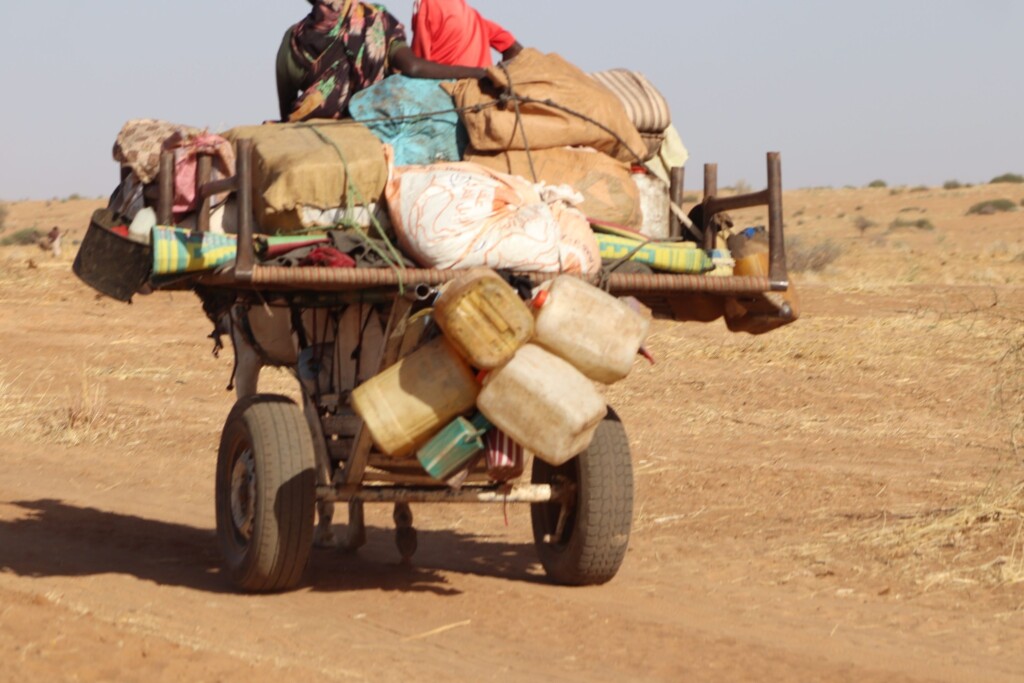
‘Engage, don’t exclude’
Abdelsalam insisted the solution cannot be left to the warring parties alone.
“It must be inclusive. Other political forces must also contribute. A true dialogue will show that many disagreements are imagined or rooted in personal rivalries,” he said.
He urged Sudanese to sit together, agree where possible, and leave disputes to the people to decide. Exclusionary politics, he warned, especially attempts to erase the Islamists, only fuel the conflict.
Foundational questions
Abdelsalam argued that Sudan’s priority is now to address “foundational questions”: how to build a political system that reflects Sudanese aspirations, history, and culture; whether governance should be federal or confederal; and, critically, the establishment of a single national army.
“Even federalism requires one army,” he stressed.
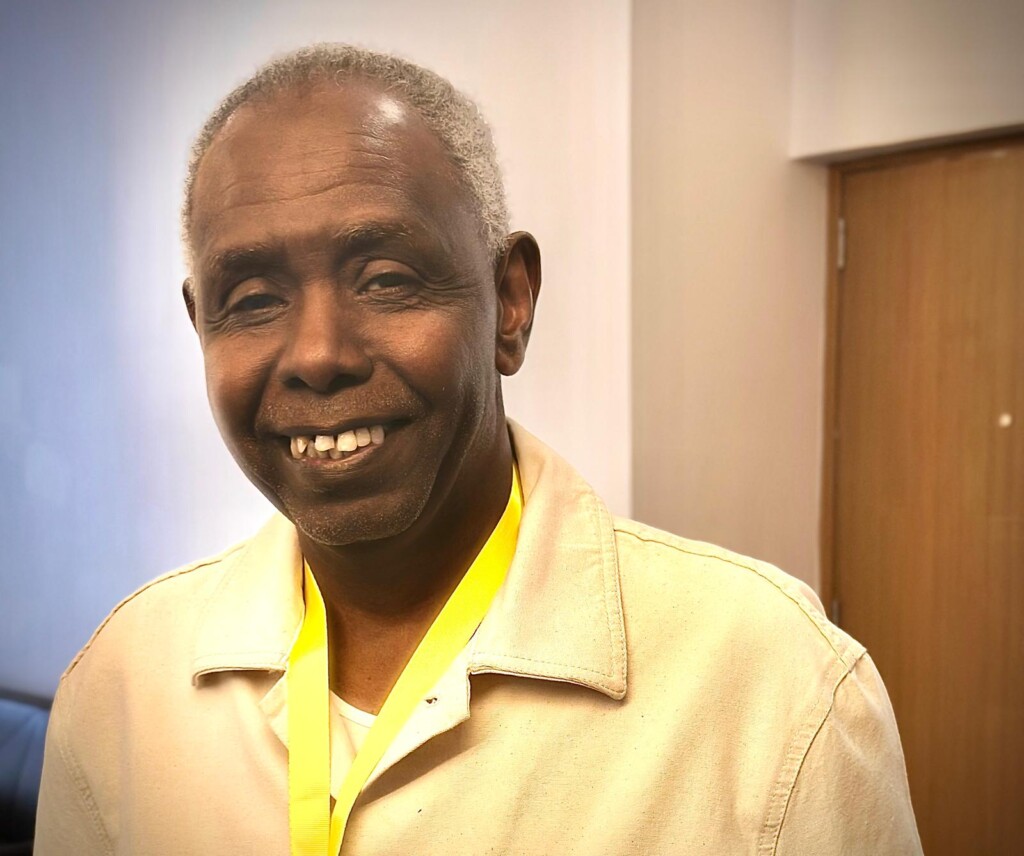
Proposed roadmap
Abdelsalam outlined a four-step roadmap: first, a ceasefire; second, an end to hostile rhetoric that fuels war; third, an accepted interim government to manage daily affairs; and finally, a constitutional conference.
That conference, he said, must tackle core issues: one army, governance system, transitional justice, and identity. It should follow the model of major national conferences in world history.
He urged political parties to focus on these foundational debates while leaving day-to-day governance to technocrats trusted across the political spectrum.
Religion and politics
Asked about Islamist insistence on “Islam is the solution” versus demands for secularism, Abdelsalam replied:
“The purpose of politics is democracy. In a true democracy, parties compete on programmes, not on identities or regions. Islamists can then be part of the national community. That is our greatest challenge.”
A third path
Abdelsalam suggested what he called a “third path”: a national roundtable on foundational questions, convened by the internationally recognised government.
He pointed to Prime Minister Dr Kamil El Tayeb Idris, now moving his administration from Port Sudan to Khartoum, as well placed to launch such a dialogue.
International role
On the Quartet (US, Egypt, Saudi Arabia, and UAE), Abdelsalam said their recent statement was neither fully positive nor fully negative.
“It must be used by Sudanese actors to push for a solution owned by Sudanese,” he said, warning that each country had its own interests.
He highlighted the Cairo Conference as a rare achievement, bringing Sudanese factions together without foreign interference. It addressed humanitarian aid, stopping the war, and resuming politics.
“It was not a complete success, but it offered a valuable opportunity. Egypt, which hosts millions of Sudanese, can help lead this process,” he said.
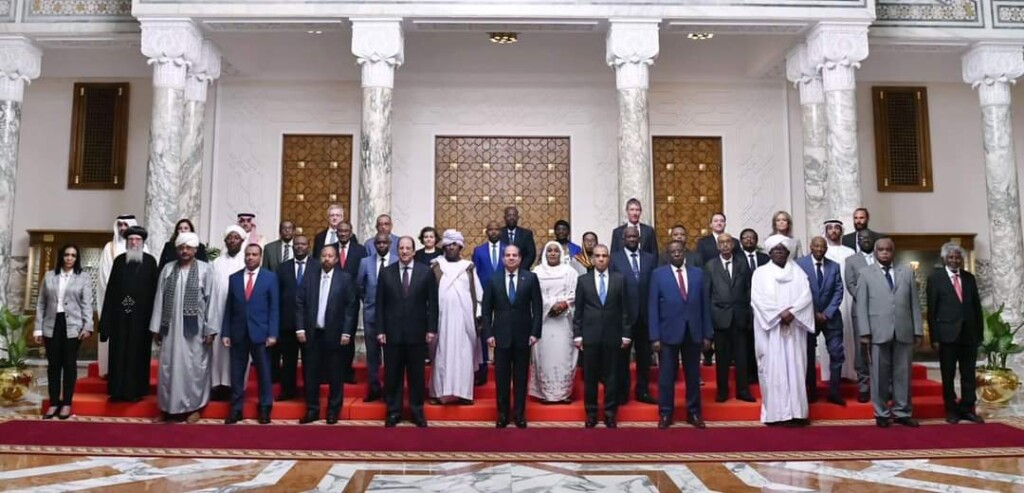
Hate speech and tolerance
Abdelsalam warned that hate speech is now Sudan’s gravest threat.
“War begins with words, and it continues with words. Social media, once a blessing, has become a major danger,” he said.
He called for a spirit of forgiveness to heal the nation: “After the December Revolution, I said we needed a Christian spirit — by that I meant forgiveness, healing, and the ability to overcome problems for the sake of future generations.”
Closing call
Abdelsalam ended with a direct message to Sudanese: stop fanning the flames of war through social media, debate ideas, and embrace reconciliation.
“I call for a Sudanese formula of tolerance and reconciliation, and a Sudanese formula of transitional justice,” he said.
And to the warring parties, his words were blunt:
“You have no choice but to end the war and silence the guns.”
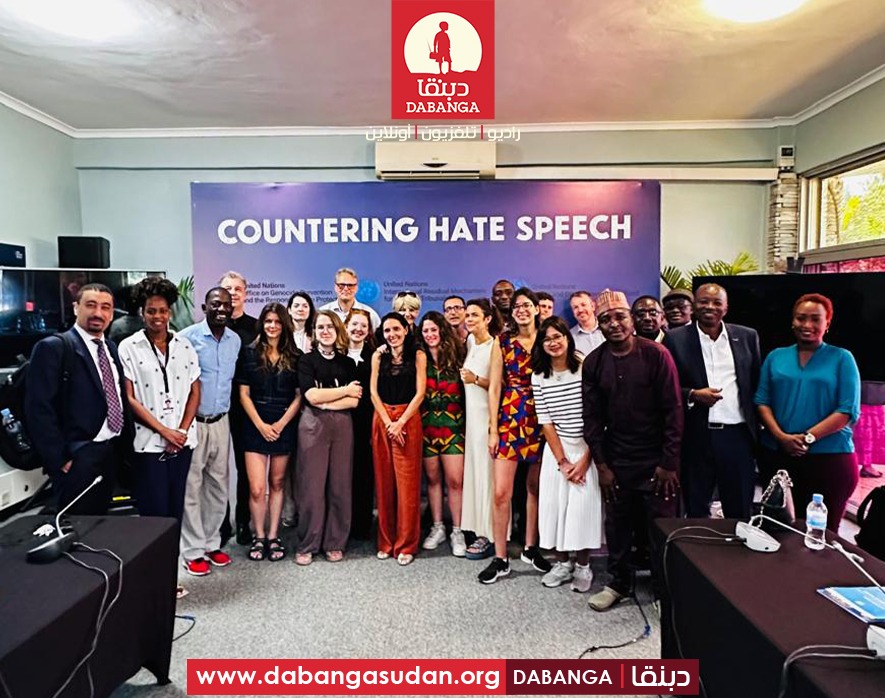
Listen to the full Arabic interview here:







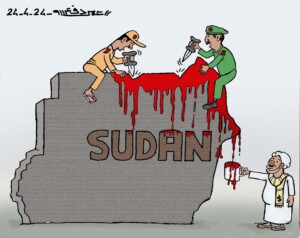
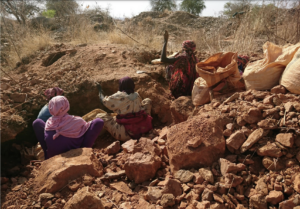


 and then
and then